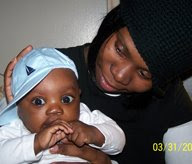Bloggers of color underrepresented by mainstream media
By CHRISTABEL NSIAH-BUADISpecial to the Amsterdam News
With the acquisition of African-American media titans by corporate machines – the latest being that of Essence magazine by AOL Time Warner – there are very few places people can go to hear or read news content that reflects the increasing diversity of the United States.
In some ways, bloggers, independent journalists and writers who publish their own columns and articles online, have forced the mainstream media to investigate real news and maintain some level of diversity. Last year, bloggers were invited to both the Republican and Democratic National Conventions as part of the press corps.
Earlier this year, two liberal blogs, “Daily Kos” and “AmericaBlog,” exposed the real identity of the right-wing “journalist” Geoff Gannon (aka James Guckert). “Gannongate” was a top news story for weeks. And bloggers are regularly invited onto the top radio and TV news shows to provide an “alternative” voice on top news stories. But the most prominent bloggers, the ones who are regularly invited to provide this “alternative” voice, are overwhelmingly white and male.
Some people say that the bloggers who appear on TV and radio are the best of the crop and choose not to question the lack of diversity. They justify this theory by claiming that blogging is democratic in nature – people can publish what they like and people can read what they like. So the best writers will naturally gain more prominence. But surely not all the best bloggers are white and male? When asked why there is so little diversity, members of the bloggers network BrownBloggers.com agreed that the lack of non-white representation was the result of a lack of media control and because, as one respondent put it, “White America thinks that what brown bloggers write about doesn’t apply to them.”
Abhi Tripathi, co-founder of Sepia Mutiny, a blog that takes a look at the world from a South Asian-American perspective, also suggests that the failure by the white dominated mainstream media to reach out to other cultures has contributed to the poor representation of bloggers of color in the mainstream: “Journalists seem to perform the bare amount of work necessary to report a story nowadays. This seems to be because it is more difficult to try to understand people of different cultures than it is to understand someone like them.”
Chris Rabb, founder and chief evangelist of Afro-Netizen, takes this point further. He argues that the “blogosphere” reflects and in fact amplifies the inequalities of our society. He also says that the inability to include different people is more of a problem for liberal white America: “There are highly visible non-white conservative bloggers, La Shawn Barber, Michelle Malkin, who is Asian-American, and then there is Black America’s Political Action Committee … (but) you only have a few non-white bloggers – who are not politicians – who are given [mainstream media] access. Ron Walters and Donna Brazile. There are few others. And when you look at who is receiving contracts, very few are issued to African Americans that anyone is familiar with.”
Rabb has been subjected to this attitude himself. As one of only 37 bloggers invited to be part of the press corps at the Democratic National Convention last year (and the only credentialed blogger at the DNC whose readership was primarily Black), Rabb sought advice on how to raise the profile of his blog, Afro-Netizen, from Markos “Moulitsas” Zuniga of “Daily Kos” fame. Rabb said Zuniga “looked at me like I was crazy. He had no interest in the world to help me. He never extended himself; that speaks volumes.”
But Rabb and Tripathi concede that another reason for the poor representation of blogger-pundits of color in the mainstream media might be because there really are fewer career bloggers of color right now. Rabb cites less money, time and access to technology as a few reasons for this, and says communities of color need to empower their technically savvy grassroots movements if we want to have a voice in the future. But for people who are already tapped into the blogosphere, there are groups who can help get the word out.
One such group is BrownBloggers.com. Its co-founder, Nichelle Stephens, says she created the network because she recognized the need for bloggers of color to help each other get their message out to the wider community. For her the solution is simple in concept: It’s all about connecting and spreading the word. It’s about everyone sharing in order to get ahead. And I want to share information.”
Originally posted on Afronetizen









 Hurricane Katrina: African American Relief Efforts
Hurricane Katrina: African American Relief Efforts


<< Home